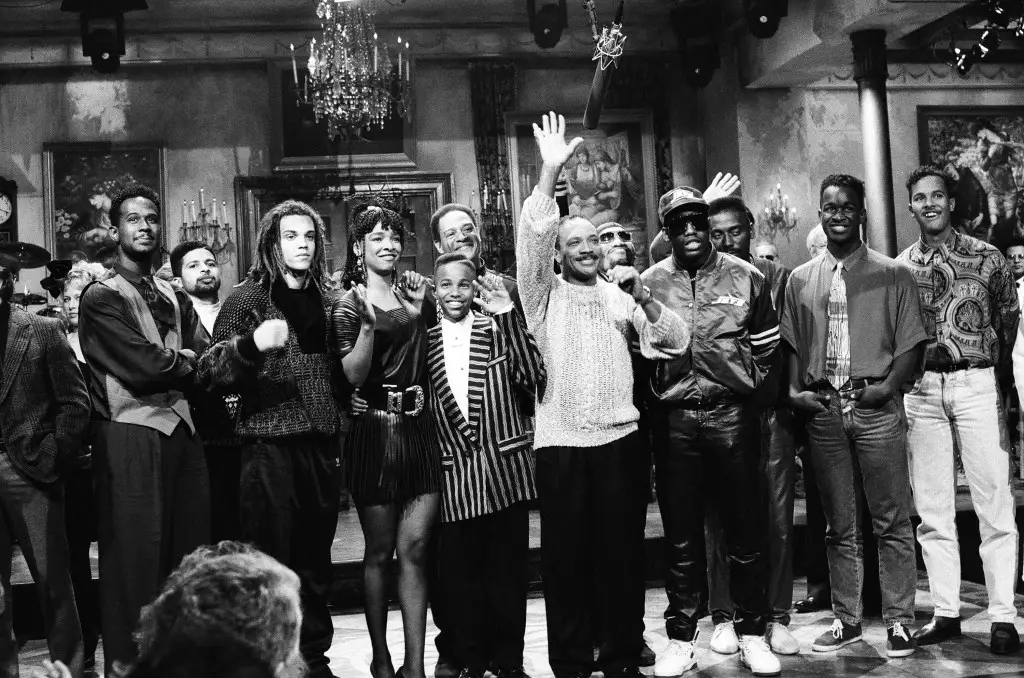The music world is mourning the loss of one of its most influential figures, Quincy Jones, who recently passed away at the age of 91. Renowned not only for his remarkable talent but also for his contributions across various music genres, Jones left an indelible mark on the industry. As a way to celebrate his legacy, the popular television show Saturday Night Live (SNL) dedicated a heartfelt tribute to him, showcasing the profound impact he had on artists and audiences alike.
The tribute at the end of the SNL episode underscored Jones’ significance in popular culture. His only appearance as a host in February 1990 was a memorable one, where he was riding the wave of his successful album “Back on the Block.” Jones’ episode featured an unprecedented lineup of ten musical guests, including talents like Kool Moe Dee and Melle Mel, setting a record that remains unmatched. This capacity for bringing together artists from diverse musical backgrounds showcased his ability to break boundaries and reinvent genres.
His monologue during that episode was particularly poignant, as he spoke about Nelson Mandela’s impending release from prison, making the evening a fusion of music and a moment of significant historical relevance. For viewers who were fortunate enough to experience that show live, it was not just a celebrity guest hosting; it was a celebration of cultural shifts, hope, and a powerful reminder of the unifying force of music.
Quincy Jones was much more than just a music producer—he was a visionary whose career spanned seven remarkable decades. From producing the best-selling album of all time, Michael Jackson’s “Thriller,” to his collaborations with legends like Frank Sinatra, Jones’ résumé is a masterclass in musical versatility. He also translated his artistic vision to the screen, producing acclaimed works such as the film adaptation of “The Color Purple,” contributing significantly to both film and television scoring.
Moreover, Jones was not only a producer but also an artist and composer who crafted unforgettable scores for iconic films like “In the Heat of the Night,” “Bob & Carol & Ted & Alice,” and many others. His impact extended beyond music; he nurtured and influenced emerging talents, leaving behind a legacy that inspires future generations of musicians.
Beyond his professional accolades, Jones’ role as a father cannot be understated. Among his seven children is actress Rashida Jones, known for her performances in “Parks and Recreation” and other shows, indicating that his influence also resonated within his family. Through his artistic and familial connections, Quincy Jones crafted a legacy that transcended time, continuing to inspire both personal and professional growth in those around him.
In reflecting on the life of Quincy Jones, one cannot overlook the immense contributions he made to the music and entertainment industries. He bridged cultural divides, brought together diverse musical influences, and fostered a spirit of collaboration. The tribute from SNL serves as a reminder that while Quincy Jones may no longer be with us, his music and contributions will resonate for generations to come, enriching the fabric of our cultural history. The world may have lost a great artist, but his legacy will undoubtedly live on in the hearts and minds of fans worldwide.

